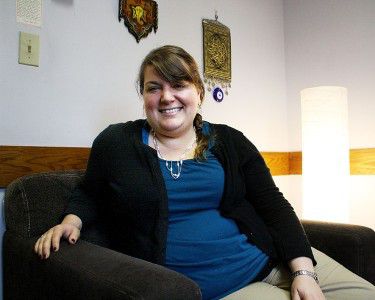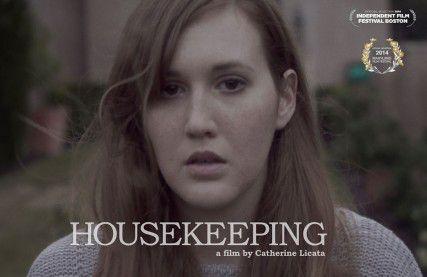A look into the religiously diverse demographic at a modern Boston University

Boston University’s Charles River Campus, which is located at the heart of one of the nation’s most diverse cities, stretches across 1.3 miles of Commonwealth Avenue. With this location and immense physical size comes many drawbacks in creating a cohesive community and finding a common space. However, these attributes also provide a lot of advantages for the religiously and culturally diverse population of BU, said Rev. Brittany Longsdorf, the University Chaplain for International Students.
“I think there are some challenges in being urban, but I think the flip side of that for interfaith nature and collaboration is that because we’re in such a thriving, diverse city, we have access to all different kinds of Hindu temples, Sikh gurdwaras and Jewish synagogues,” Longsdorf said. “You can really experience so many different types of faith practices that allow students to collaborate in those ways and explore diversity in everyday life.”
Religious history at BU
BU, which began as a small Methodist theological seminary in 1839, is now a large, urban research institution that is home to more than 33,000 students of nearly every race and religion from more than 140 different countries.
Adapting to its current population, BU has eight university chaplains and 21 religious life groups. Religious life at BU is a unique patchwork community of different — yet welcoming — groups who learn to work and co-exist on the same 135 acres of campus. Longsdorf said this diversity defines BU and gives a variety of students a sense of belonging.
“I think that our cultural, ethnic belonging is a big part of who we are, and I think it creates a uniqueness and an individuality in each student,” she said. “It’s what brings this spice and this flavor to campus.”
If everyone had to conform to a uniformed identity and leave behind his or her cultural upbringing, the campus would be a boring place for students, she said.
“I think our faith that we’ve grown up in, and even the faith that we want to explore now, helps us find belonging and helps us identify what makes us come alive, what makes us feel inspired, and what’s worth believing in,” Longsdorf said. “These are important questions to ask ourselves, and I think it’s an important part of who we are [as a university].”
International students
The diversity of BU’s culture and religious life reflects its increasing number of international students — the university has added nearly 600 additional international students in each of the past two successive years. In response, BU hired Longsdorf in June specifically to minister to international students and help facilitate more interfaith communication on campus.
“I think Boston University as a whole is taking this really great shift toward wanting to do more programming for international students,” Longsdorf said. “Marsh Chapel is definitely leading the change in some ways, but I think also the president’s office and Dean of Students’ office are saying, ‘We’re inviting these international students here and we need to create support structures [for them].’”
BU has become a microcosm of global religious diversity, making it possible for all faiths to coexist on one campus, she said.
“We have so many students who are genuinely curious about all different religions on campus or in the world, and so I think there’s this wonderful spirit at BU of curiosity and mystery,” she said.
Longsdorf also explained that there are multiple resources available for students to explore their faith, learn about other faiths, or even just voice their opinions.
“Students are at a place where they’re okay to say, ‘I’m not sure if this religion is absolutely correct — I’m not sure if any religion is absolutely correct — but there are all of these options for me to explore right in front of me,’” she said.
Interfaith on campus
In an effort to promote co-existence and facilitate learning among students, the Interfaith Council aims to create connections between different religious groups on campus, said Abigail Clauhs, a College of Arts and Sciences senior and the president of the Interfaith Council.
“We are trying to create a more tied-together network between the different religious communities at BU,” Clauhs said. “Most of the people who are involved in the club are also heavily involved in their own religious tradition on campus.”
For example, the Hillel House and the Catholic Center, next-door neighbors on Bay State Road, are planning to do a fundraising competition together, Clauhs said.
“I love seeing at interfaith events when two students from totally different faith backgrounds who probably would never have met — or at least never would have talked about religious things if they met in another context — start saying, ‘Oh wait, that thing is really similar to my religion,’” she said.
Despite the common misunderstanding — especially in a diverse community such as BU — that interfaith goals cause all religions to appear the same, Clauhs said that is not at all what the IFC is about.
“We’re all individual and these religions are different from each other, but we can celebrate that difference and diversity and co-exist together,” she said.
Namank Shah, a CAS senior on the Hindu Students Council, said BU’s diverse community allows everyone to grow and learn about other faiths and cultures in a way that other communities cannot.
“I think it is fortunate that people at BU come from various backgrounds and practice different faiths,” Shah said. “As a result, there are a lot of religious groups on campus that hold events and provide a way for people to practice their faith together.”
For example, he said, IFC is hosting a discussion panel called “Betwixed and Between: The Interfaith Experience at BU” onNov. 13 to let students talk about their different religious experiences.
“I try to go to events hosted by different religious groups at BU, such as Hillel, IFC and ISBU,” Shah said. “This and talking to other friends from different faiths helps me to gain an understanding into their faith and culture.”
Ministry of hospitality
Ministering to both domestic and international students at a school as diverse as BU, Longsdorf said it is really has become a ministry of hospitality: making everyone feel welcome, comfortable and able to coexist.
“I felt so inspired that this was totally a ministry of compassion and a ministry of hospitality that I really wanted to be part of,” she said. “For a long time, I’ve been super interested in, and my passion lies in, interfaith and international students.”
Longsdorf’s position was created to provide specific guidance, resources and counseling to international students so that they are better able to adjust to life in Boston and at BU.
“International students by nature are interfaith because they come from different parts of the world and a lot of them come from very distinct religious cultures than ones that some other students here were raised in,” she said.
Longsdorf organizes the International Student Fellowship on Tuesday evenings as a way for international students to get together and cook, talk and make new friends.
“It’s definitely a support group — we talk about our ups and our downs,” said Emily Chen, a first-year student in the Graduate School of Arts and Sciences who is from Taiwan.
Though only at BU since June, Longsdorf said she considers BU as a place of great religious diversity, as well as acceptance and collaboration.
“I’ve seen so much cohesion and so much collaboration from religious groups on campus,” she said.
A welcoming community
Longsdorf said she has been welcomed warmly and invited to attend everything from Islamic Society at BU meetings to Hindu Student Council events to even Zen meditation on campus.
“All of the group leaders are so welcoming and hospitable, and I think that really adds to our interfaith life on campus — that everyone wants you there and everyone is going to be so appreciative, no matter where you come from, if you just show up.”
There are homes for all walks of religious life scattered around campus, with Marsh Chapel hosting many different Christian services throughout the weekend, Hillel House as a home to Jewish students and a Muslim prayer room on the second floor of the George Sherman Union, just to name a few.
“You can’t leave your dorm room and walk down Commonwealth Avenue and not experience diversity, which I think is a beautiful thing about being so urban and being at BU,” Longsdorf said.


















































































































Bearclover • Dec 5, 2013 at 9:13 pm
“Longsdorf’s position was created to provide specific guidance, resources and counseling to international students so that they are better able to adjust to life in Boston and at BU.”
Except, of course if you’re a humanist. And then you’re just SOL.